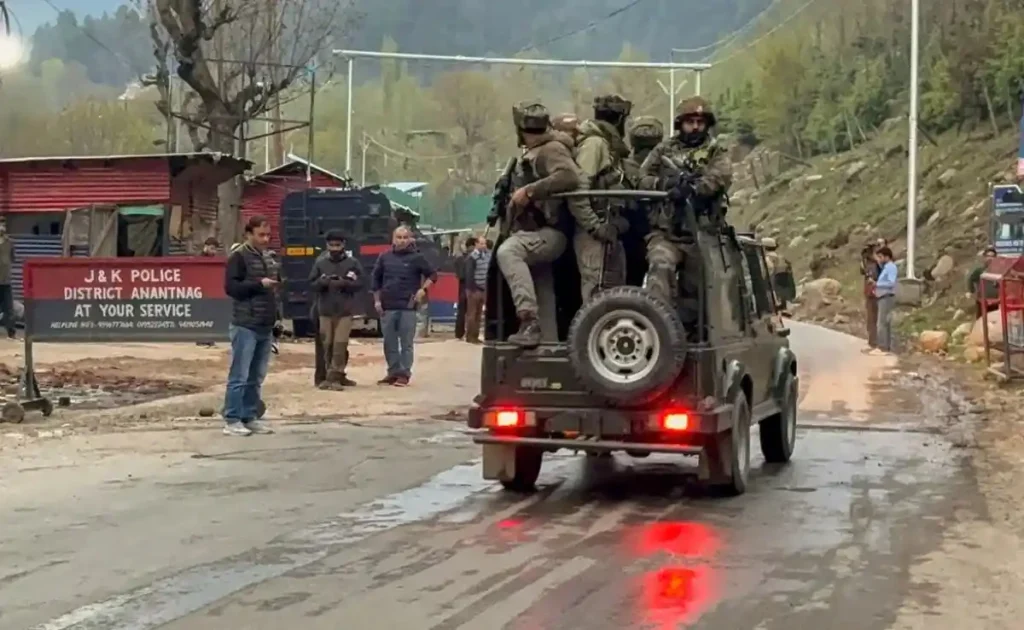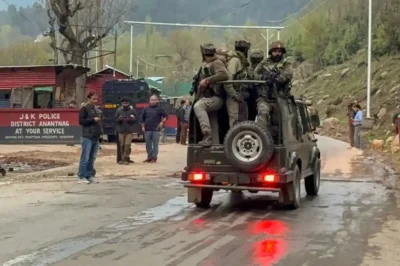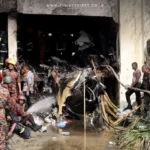
The Pahalgam Attack: A Nation in Mourning
On April 22, 2025, a brutal terrorist attack rocked the peaceful tourist hub of Baisaran Valley in Pahalgam, Jammu and Kashmir. What began as a serene day in one of the valley’s most scenic locations turned into a scene of unimaginable horror. A group of armed assailants, reportedly carrying AK-47s and M4 carbines, ambushed tourists, killing 26 and injuring over 20 others. Eyewitnesses shared chilling accounts: the attackers segregated people by religion and, in some cases, forced them to recite Islamic verses before shooting them. The methodical and cruel nature of the attack has drawn parallels to the 2008 Mumbai terror attacks, reigniting national trauma and triggering a wave of condemnation and grief across the country.
Prime Minister Modi’s Resolute Response
Prime Minister Narendra Modi swiftly addressed the nation, strongly condemning the attack and expressing deep sorrow for the victims and their families. He promised unwavering action, stating that the perpetrators would be hunted down regardless of where they attempt to hide. Modi called the attack “cowardly and inhuman” and reaffirmed the government’s zero-tolerance stance against terrorism. His message was clear: India would not rest until those behind the bloodshed were brought to justice. He also urged unity and solidarity, assuring the public that the government is fully committed to maintaining national security.
Diplomatic Fallout and Escalating Tensions
The incident has led to a dramatic deterioration in India-Pakistan relations. India has accused Pakistan of providing a safe haven for the terrorist groups believed to be behind the assault. In response, India has taken several punitive steps: suspending the 1960 Indus Waters Treaty, closing the main border crossing at Wagah, expelling Pakistani diplomats, and revoking all valid visas issued to Pakistani nationals. Pakistan, in turn, has denied involvement and retaliated by suspending the 1972 Simla Agreement and closing its airspace to Indian aircraft. With both sides now trading sharp diplomatic and military postures, the possibility of a larger conflict has become a growing concern for the international community.
Security Overhaul and Military Mobilization
In the aftermath of the attack, India’s security apparatus has gone into high alert. Union Home Minister Amit Shah visited the scene in Pahalgam and held strategic meetings with senior military and intelligence officials. A major reshuffle in local policing and border surveillance is underway. Plans are also being drafted for the permanent deployment of the Indian Army and paramilitary forces in key regions of Jammu and Kashmir, especially with the Amarnath Yatra just weeks away. Military search operations, including aerial surveillance by helicopters, have already begun as India attempts to capture or eliminate the attackers and dismantle their network.
International Reactions and Regional Implications
The international community has reacted with alarm and sorrow. United Nations Secretary-General António Guterres expressed deep concern and called for swift accountability. The United States, United Kingdom, France, and Russia all condemned the attack and issued statements urging India and Pakistan to avoid escalating the conflict. Global leaders have also emphasized the need for regional cooperation in counterterrorism efforts. Many are calling for a thorough and impartial investigation, with some nations offering assistance in intelligence sharing. The geopolitical ramifications are already being felt, as increased military presence along the Line of Control has made the region a hotbed of tension once more.
The Human Cost: Victims and Heroes
The attack claimed the lives of individuals from various parts of India and even two foreign nationals. Among the dead were newlywed officers from the Indian Navy and Air Force, a young Intelligence Bureau official, and a group of schoolteachers on a retreat. While the tragedy exposed glaring security lapses, it also brought forth incredible acts of courage. Local pony operators risked their lives to ferry wounded tourists to safety. Volunteers and local residents came forward to assist with first aid, shelter, and emotional support. Sikh gurudwaras in the Kashmir region opened their doors to stranded tourists, offering food, beds, and safe passage out of the valley.
A Nation’s Resolve
As India mourns its dead, it also finds itself standing at a pivotal crossroads. The brutality of the Pahalgam attack has galvanized the nation’s collective will to eradicate terrorism from its soil. Prime Minister Modi’s strong stance is reflective of a broader sentiment: that such atrocities will not be tolerated, and justice will be served, swiftly and decisively. The days ahead are likely to be tense, both diplomatically and militarily, but they will also be marked by a renewed commitment to securing the nation and protecting its citizens. While scars of the attack may remain, India’s resolve to rise above fear and respond with unity and strength has never been more evident.






































Leave a Reply